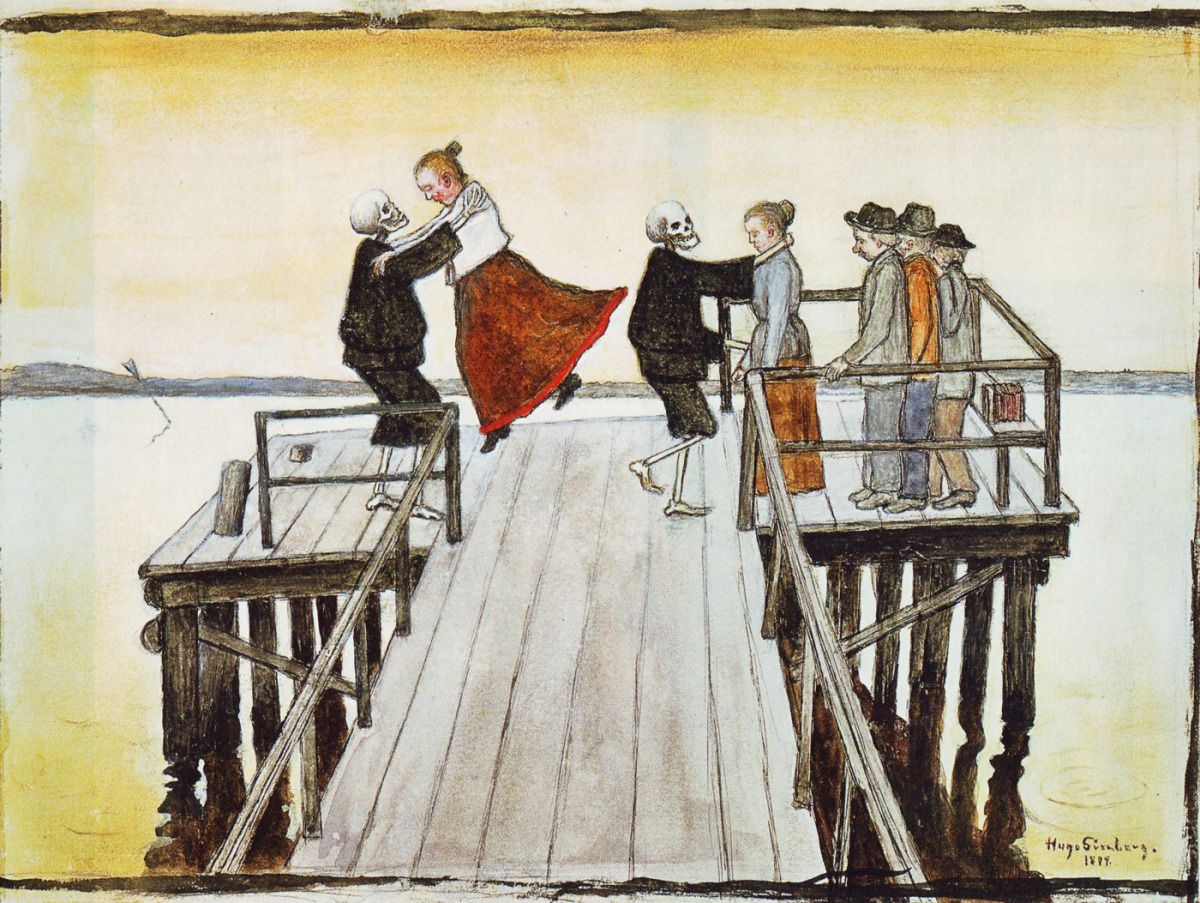When Protest Is 'Terrorism,' Material-Support Charges Are Next
Wednesday's arrests of the Atlanta Solidarity Fund over Cop City could be a strike against protest infrastructure nationwide, warns Cat Brooks of the Anti-Police Terror Project.

Edited by Sam Thielman
AROUND THE TIME we send out this newsletter, the Atlanta City Council is scheduled to vote on whether to approve a huge, hotly contested police training facility billed officially as the “Atlanta Public Safety Training Center” but known more widely as Cop City. However the vote goes, activists have planned a "week of action" against the project beginning June 24. But last Wednesday, well in advance of both the vote and the anticipated protests, police raided, arrested and charged three members of the Atlanta Solidarity Fund, which has provided bail money for people arrested for protesting Cop City, with money laundering and charity fraud.
Moving against the Atlanta Solidarity Fund follows a classic War on Terror pattern. First, violently confront and even kill anti-Cop City activists. Then, arrest more than 40 similarly-motivated activists and charge them with domestic terrorism using a state law passed to stop white-supremacist murderers like Dylann Roof. The arrestees are resisting a redistribution of public resources to police that involves the environmental spoilage of southeast Atlanta, and Georgia authorities have represented that resistance to the courts as terrorism. Then, go after those who provide the resources that get such people out of jail.
The arrests also speak to another tradition in this country, one coterminous with the War on Terror and whose legacy the War on Terror reflects: state violence against Black liberation. Cat Brooks, the executive director of Oakland-based activist coalition The Anti-Police Terror Project, says the crackdown on resistance to Cop City represents a template that can be deployed nationwide by right-wing state governments, prosecutors, and allied police departments.
"If they're allowed to be successful, they could take out grassroots organizing groups across the country," Brooks tells FOREVER WARS, who warns of a potential chilling effect even if those organizers aren't directly targeted by prosecutors.
"Solidarity bail funds, collective bail funds have been part of the Black resistance movement, most notably since the Civil Rights Movement, and with the 2020 George Floyd rebellion, that's something that's picked up again," Brooks explains. "A lot of the political conversations that we're having at ATPT are looking at what lies ahead over the next 18 months as we enter the next presidential [election], with not just one law-and-order violent presidential candidate but two. And if you correlate the repression against vulnerable bodies of color that happened in 2015, 2016 and actually never [ceased], we can expect more of that."
It's not a hypothetical concern for Brooks. The Anti-Police Terror Project provides bail funding for arrestees, too—particularly Black, brown, trans and nonbinary people engaged in movement work. They could be targeted if California decides what's going on in Georgia represents a promising innovation. "We have no intention of slowing down," Brooks says. "I'm hoping it's not what we see, but when state repression happens, it often is what we see."
But, she adds, "They can't incarcerate all of us."
GEORGIA MAY NOT exactly have a material-support-for-terrorism law in place, but it does have a RICO statute, and what unfolded on Wednesday is unmistakably a strike against protester infrastructure. The charges faced by Marlon Scott Kautz, Savannah Patterson and Adele Maclean of the Atlanta Solidarity Fund carry the potential for 20-year prison sentences and fines in the hundreds of thousands of dollars.
Georgia Deputy Attorney General John Fowler argued in court that the Atlanta Solidarity Fund provided money to "keep people connected to the protests." Among the claims made in the warrants for their arrest is that they "fund actions in part of Defend the Atlanta Forest (DTAF), a group classified by the United States Department of Homeland Security as Domestic Violent Extremists." But on Jan. 25, FOREVER WARS reported that the Department of Homeland Security does not, in fact, classify Defend the Atlanta Forest as domestic violent extremists.
If Fowler's arguments succeed, then the financial infrastructure of a protest movement will be held responsible for crimes allegedly committed by people several steps downstream of that funding, whether or not an act of violence occurred or funding was intended to finance such an act. That is the logic of the 1996 Anti-Terrorism and Effective Death Penalty Act and, five years later, the PATRIOT Act. Only now we're not talking about terrorism, we're talking about organized dissent against a police training center—and other actions likely to accelerate as the movements against climate change and structural racism continue to understand themselves as two sides of the same coin.
Local reports on the Atlanta Solidarity Fund arrest indicate that the judge assigned to the case, James Altman, is dubious about the charges. "There's not a lot of meat on the bones," Altman said on Friday. He granted Kautz, Patterson and Maclean a $1500 bond each, but warned that they couldn't be involved with an "illegal occupation of the forest"—the site of the most contentious demonstrations against Cop City—or Fowler "could be hopping on a motion to revoke bond." That seems like an example of the chilling effect Brooks is talking about.
Gerry Weber, senior counsel for the Southern Center For Human Rights, has represented Kautz and Maclean before. (He also is representing a journalist in a different Cop City-related case.) None of those cases involved anything like Kautz and McLean committing an act of violence. One involved them filming a police arrest, and the other involved feeding people through Food Not Bombs without a permit.
The Atlanta Solidarity Fund provides not only bail payments, but also access to attorneys for arrestees, making the move against the Fund an attack not just on "the right to free speech but the access to counsel in criminal proceedings," Weber points out.
"The collective goal is to silence dissent about the locating and building of the Police Training Center. I've been a civil rights lawyer for 33 years, I've never seen these kinds of charges rolled out this way," Weber tells FOREVER WARS. "The only time I've seen something close was in 1996 during the Olympics, where I represented someone who was an anarchist and charged with advocating the violent overthrow of the Georgia government. The charges were dismissed, but he had put together a comic book of his own work and he had a, quote, 'recipe for a Molotov cocktail' as a joke."
Brooks calls what's happening in Atlanta "a watershed moment." She urged the Atlanta City Council to reject Cop City—whose backers recently conceded that they're out for $67 million in public money, not the $31 million they previously claimed. Weber also raised an eyebrow at raiding the Atlanta Solidarity Fund right as the rising Cop City costs came to light.
"I would remind them that the violence that is happening around the fight to stop Cop City is all coming from the carceral state," Brooks notes. That's a reference to the recent finding by the DeKalb County medical examiner that the slain protester known as Tortuguita had no gunpowder residue on his hands, contradicting the police narrative that Tortuguita fired on them.
"This fight is about Cop City," she continues, "but it's so much more than that, as we push forward and we fight our way forward, tooth and nail, to a world where public safety actually keeps us safe and does not rely on a badge and a gun."
TEN YEARS AGO TOMORROW, I was doing pushups in The Guardian's Washington D.C. newsroom to deal with the stress of our imminent publication of the biggest leak in the history of the National Security Agency.
I don't really feel like doing anniversary journalism on the Snowden trove. I was not remotely the central figure in reporting it; anniversary journalism is lame; and my contributions to reporting on the Snowden stuff are not the exciting bits that get made into movies, but rather the quotidian stuff that is too boring for the movies, like interacting with the NSA, the White House and the phone companies ahead of that first piece we published.
On that one, I got a contributor line, not a byline. Although I also got to be on a phone call with panicked U.S. intelligence officials, who told my editor Janine Gibson that we would have blood on our hands for publishing an order showing that the NSA was collecting, in bulk, purely domestic phone metadata on millions of Americans. It was, you'll remember, three months after the Boston Marathon bombing, and that was a bullshit attempt at intimidating us into delaying or canceling publication.
Still, yesterday I finished Malcolm Harris' excellent book Palo Alto: A History of California, Capitalism and The World, and it contained an assessment that I can't really take issue with but still didn't love:
To get the story out, Snowden planned and successfully executed a complicated plan to leak and escape, one that benefited from the latitude the state gave skilled contractors like him. Here was an achievement story subject gone wrong, and the revelations shocked the world, as did the exciting backstory. But Americans didn't stop using the internet, and the Obama administration cracked down on whistleblowers rather than reconsider the B2K [Harris' shorthand for Silicon Valley support for Bush and post-9/11 alliance with the War on Terror] techno-capitalist security state. None of the PRISM firms has faced negative market consequences; even if you bought the day before the leaks, a Snowden stock index would still have made an excellent investment. A monopoly was a monopoly.
Not wrong! But Snowden's goal wasn't to get Americans to "stop using the internet," nor was it the goal of the journalists who delved into the NSA files. The goal was to expose how compromised—how dangerous to your freedom—the NSA and its allies had made the internet, and thereby open the possibility of democratic accountability. Harris' book is among other things a chronicle of how capitalist domination has neutered democratic accountability, so, yes, we made use of a weak lever.
But I also saw how fearful the government side of the "techno-capitalist security state" was of democratic accountability. Had they looked at it structurally, at the political and economic drivers that favored the NSA keeping their unconstitutional surveillance in place, perhaps they would have been more nonchalant. Instead, they told us people would be killed if we published, and even forced a reroute of Evo Morales' presidential plane on the mistaken suspicion that he was ferrying Snowden to asylum in Bolivia.
Their panic revealed to me that they knew they lacked democratic legitimacy. All those structural advantages they enjoyed did not substitute for that legitimacy deficit once we exposed the surveillance, even if their structural advantages kicked into play later that summer and afterward. Journalism (and Marxist understandings of history) will teach you that a big story is unlikely to shatter those advantages on its own. But I consider myself lucky to have been involved in a story that exposed that illegitimacy and instilled that fear.

